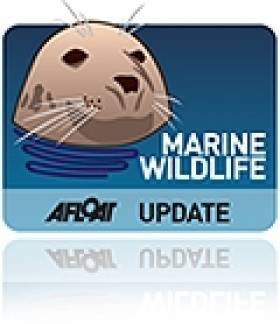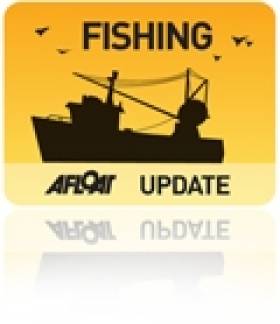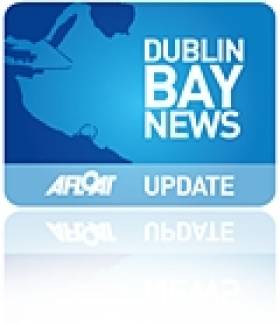Displaying items by tag: feeding
Fin Whale 'Feeding Frenzy' Off Hook Head
#MARINE WILDLIFE - A "feeding frenzy" involving a pod of fin whales was spotted off Hook Head in Co Wexford last week, The Irish Times reports.
And according to Andrew Malcolm of the Irish Whale and Dolphin Group (IWDG), two of the whales were in the same location almost exactly a year ago.
Malcolm, who was with a group on board the Rebecca C, used photographs of the whale's dorsal fins to compare records for the confirmation.
The pod of six fin whales was seen feeding some 3km southeast of Hook Head, attracted by the herring spawning grounds in the area.
More than 30 other cetaceans, including common dolphins, porpoises and a minke whale, were sighted on the trip.
The Irish Times has more on the story HERE.
Wild Salmon Showing Signs of Adapting to Climate Change
New evidence is indicating that wild salmon are adapting to climate change by feeding in colder waters, The Irish Times reports.
According to salmon expert Dr Ken Whelan, wild salmon are now diving as far as 800m below the surface - normally the preserve of the sperm whale - to feed for periods of up to 24 hours during winter months.
They are also travelling closer to the polar ice fields, in response to the warming of the Atlantic Ocean.
The change in behaviour was noted at a salmon summit in France attended by more than 100 fishery managers and scientists from across Europe, which was convened to discuss the threat of climate change to wild salmon stocks at sea.
Plankton levels are particularly affected by the changing wind and ocean currents, said Dr Whelan of findings from the EU-funded Salsea programme, which he led.
“Surviving the first winter at sea seems to be the key challenge for these stocks, and the salmon in the northern states like Norway and Russia, seems to be less affected,” he said.
But the recent return of wild salmon to the Tolka in Dublin, as well as healthy numbers along other inland waterways, highlighted that the news was not all doom and gloom.
The Irish Times has more on the story HERE.
Howth Ban on Seal Feeding 'Threat to Tourism'
Feeding harbour seals could land Howth visitors with a fine for thousands of euro, according to a recent letter in The Irish Times.
Milo Kane writes of a new notice placed near the west pier by harbour officials which "threatens a draconian €5,000 fine on any person feeding seals from the pier".
He also claims that local traders and harbour staff he spoke to could give no "commercial or biological reason" for the ban, which he says will ultimately result in fewer visitors to Fingal.
We're keen to hear from anyone who know the reason behind this new sign in Howth. Leave a comment below if you know the answer.
































































